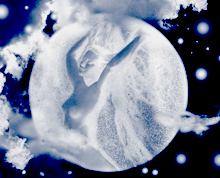 |
The Disorder of the Sexes in A Midsummer Night's Dream
 |
The Disorder of the Sexes in A Midsummer Night's Dream
I. Thesis Statement:
A Midsummer Night's Dream is a play to a wedding play. It begins with Theseus's
conquering of the kingdom of Amazons, and culminates in the celebration of the
three couples's marital union. However, what lurks under the seeming marital
harmony is the threatening of the disorder of sexes to the patriarchal system.
Whether the marital unions in the ending of the play are real the celebration
of romantic true love or the ending of submitting the threatening into the patriarchy
is arguable.
II The Order of the
Sexes and Marriage.
In her The Purpose
of Playing: Shakespeare and the Cultural Politics of the Elizabethan Theater,
Montrose states the order of sexes and household, in the world of A Midsummer
Night's Dream is based upon the reciprocal obligations:
The play's dominant ... perspective on wedded bliss is in harmony with prevailing Elizabethan doctrines regarding marriage and the domestic economy; The household is a hierarchally organized social institution, analogous to the body politic, and based upon the reciprocal obligations of husbands and wives, parents and children, masters and servants; harmonious marital partnership is predicated upon the wife's obedience to her husband, as divinely authorized ... (Montrose 110).
III. The unruly women,
the tension between the male and the female, and the threatening of the disorder
of the sexes
A. Theseus and Hippolyta: the male conqueror and the female warrior
Hippolyta is the queen
of the Amazons, "the female warriors" who are famous for their gynecocracy
and their exclusion of male. At the play starts, Theseus captures its queen
Hippolyta as his wife by the military forces:
Hippolyta, I woo'd thee with my sword,
And won thy love, doing thee injuries;
But I will wed thee in another key,
With pomp, with triumph and with revelling. (I.i: 16-19)
Theseus's marriage is prized by his military conquest. His victory is both of the military force and his male domination over the female, which is particularly symbolic in his submitting the queen of the Amazons.
B. Egeus and Hermia: the dominant father and the disobedient daughter
Immediately after Theseus proclaims his coming wedding, the seeming assurance
of the order of the patriarchy, Egeus comes to Theseus in pursuit of submitting
his daughter to the enforced marriage. Hermia's disobedience is not only the
domestic issue. Egeus resorts his enforcement to Theseus's authority and the
law of Athens and makes Hermia's choice of marriage becomes public and juridical.
Full of vexation come I, with complaint
Against my child, my daughter Hermia....
(Lysander)
Turn 'd her obedience, which is due to me,
To stubborn harshness: and, my gracious duke,
Be it so she; will not here before your grace
Consent to marry with Demetrius,
I beg the ancient privilege of Athens,
As she is mine, I may dispose of her:
Which shall be either to this gentleman
Or to her death, according to our law
Immediately provided in that case. (I.i: 39-45)
Theseus, as the head
of this patriarchal society, though extends Hermia's option to be cloisted,
in fact still confines Hermia within the law of the patriarchy based on the
divinely authorized paternal privilege . The fact Theseus asks Hermia to give
her answer on his wedding day strengthens the impression the marriages as a
form to assure the stableness of the patriarchal society.
C. Oberon and Titania: the married Fairy King and Queen
Oberon and Titania
are the only married couple in this play. The episode of the quarrel in the
fairy world, also counterpoints the threatening of the disorder of sexes in
the human world. The cause of the quarrel is Titania refuses to give Oberon
the Indian boy that he requested. Titania refuses Oberon's request for the boy's
mother's sake and their female bond:
His mother was a votaress of my order:
And, in the spiced Indian air, by night,
Full often hath she gossip'd by my side,
And sat with me on Neptune's yellow sands,
Marking the embarked traders on the flood,
When we have laugh'd to see the sails conceive
And grow big-bellied with the wanton wind;
Which she, with pretty and with swimming gait
Following,--her womb then rich with my young squire,
Would imitate, and sail upon the land,
To fetch me trifles, and return again,
As from a voyage, rich with merchandise.
But she, being mortal, of that boy did die;
And for her sake do I rear up her boy,
And for her sake I will not part with him. (II. i:123-35)
The female bond between
Titania and her votaress reminds us of the female bond of the Amazon society.
Oberon's request for the Indian boy on the one hand can be seen as the assertion
of his male domination. When Oberon questions, "Am not I not your Lord?"
(II.i: 63) he is claiming his right of a husband to a should-be obedient wife.
On the other it can be also seen as the intention to cut down the female bond,
which also echoes Theseus's conquest of the Amazons, his disruption of the female
bond and his captures of Hippolyta which brings her into the heterosexual marriage
within the order of sex in the patriarchal society.
IV. Conclusion
Theseus in the human world, Oberon in the fairy world, both seek to exercise their male domination by insisting the rule and form of marriage. What behind the marital harmony in the play is the male's desire to submit the unruly women into the patriarchal system which demands the presumed female obedience.
Works Consulted
Montrose, Louis. The Purpose of Playing: Shakespeare and the Cultural Politics
of the Elizabethan
Theater. Chicago: U of Chicano P, 1996.
Loomba, Ania. "The Great Indian Vanishing Trick-Colonism, Prosperity, and the Family in
A Midsummer Night's Dream." A Feminist Companion to Shakespeare. Oxford:
Blackwell, 2000. 163-87.
Shakespeare, William. A Midsummer Night's Dream. Ed. Harold F. Brooks. London:
Methuen, 1979.